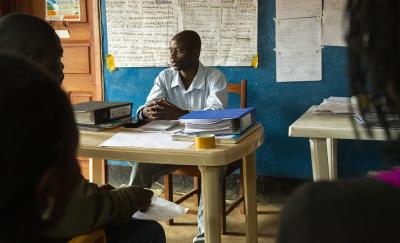
Insights
Ideas with Impact
As we approach our 60th Anniversary, we are strengthening our commitment to work with people on the tools, resources, and expertise they need to define the future, build resilient systems, and create sustainable economic opportunities. Doing so enables our communities, our families, and ourselves to prosper in secure and healthy environments. Read about our recent success in our Mission Impact Report.




Fair Futures

Effective climate action is about advancing global environmental quality, renewable energy resources, and economic opportunity to create fair, resilient, sustainable, and secure societies.
Industry Insights
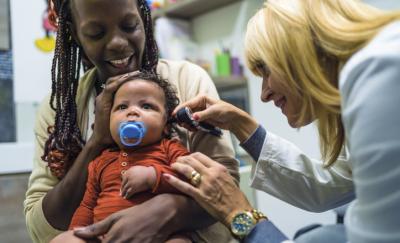
Maternal Health in Rural America: Innovative Solutions
States and communities are developing and implementing innovative approaches to reduce the alarmingly high rate of preventable maternal deaths in the rural U.S.
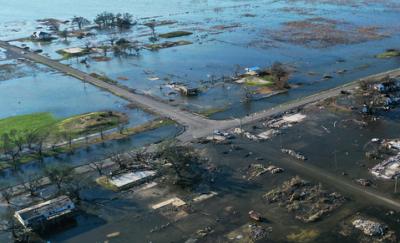
Shelter from the Storm: Addressing the Dual Crisis of Extreme Weather and Homelessness
Homeless response systems need support to strengthen their resilience to extreme weather shocks and the disproportionate harm that extreme weather has on people experiencing homelessness.

Demystifying A.I.: A Tool for Social Impact
Artificial intelligence (AI) is reshaping how we live, work, and interact with technology. As AI’s capabilities expand, so do its ethical and societal implications. In this master class, Dr. Nora Connor, Abt Global’s director of data science and AI, explores how AI evolved and how we can ensure its use for good.

Engaging Partners for Economic Growth for All
JPMorgan Chase Challenge grantees use varied approaches to engage people and organizations to guide and accelerate achievement of their work toward sustainable economic growth for all.

Attracting and Deploying State and Federal Funding for Equitable Community Development: A JPMC PRO Year 5 Thematic Report
The year 5 JPMC PRO Neighborhoods report offers ways to attract and deploy state and federal funding for equitable community development.

Fighting on Their Front: Ukraine’s Women Entrepreneurs Are Fueling a Wartime Economy
How investing in growth for all pays dividends in Ukraine.

Understanding Public Perception of Extreme Heat and Health Risks
This report by CRC, Abt, and the National Weather Service profiles public perception of dangerous heat events & recommends actionable messaging.

Advancing Economic Equity through Housing
Abt evaluated JPMorgan Chase’s PRO Neighborhoods to understand how grantees are addressing their communities’ diverse economic needs by investing in housing.

Confidence in New Approach Methodologies for Risk Assessment
Abt is working to advance the science around chemical risk assessment to support confidence in the use of New Assessment Methodologies.

How Can State Housing Finance Agencies Improve Energy Efficiency?
Two reports provide insight on ways state housing finance agencies can advance affordable housing through energy efficiency efforts.

Report Series: Mitigating Methane: A Global Health Strategy
On behalf of the Global Climate and Health Alliance (GCHA), Abt Global produced a series of reports identifying the correlations between methane emissions and public health.Capable of heating the environment 80 times more than carbon dioxide, methane is an enormous threat to climate resilience. It accounts for 30 percent of the rise in global temperatures, and worsens air quality by contributing to the creation of ground-level ozone, a toxic air pollutant that causes more than 1 million respiratory deaths in adults each year. Methane emitted today only remains in the atmosphere for 12 years, which means that while methane exerts health and climate effects for several years after being released into the atmosphere, cutting methane now can deliver immediate and substantial health benefits and buy time to reduce emissions of longer-lived greenhouse gases like carbon dioxide.Half of the methane in the atmosphere is the result of human activity, and 95 percent of that comes from one of three sectors: energy, agriculture, and waste. This report series identifies top opportunities to reduce methane emissions in the energy, waste, and agriculture sectors to improve human health.Dive into each report to learn more about methane’s health impacts by sector and opportunities for the health community to reduce emissions at international, national, and local levels.Click an image below to download the PDF.
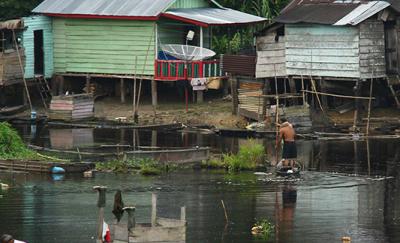
UK Can Help Supercharge Small Island Developing States’ Efforts To Build Sustainable Blue Economies
The UK can make better use of its pre-eminent finance position to bring innovative funding to the challenges that Small Island Developing States confront.

How Can We Deliver Reliable Energy to Africa’s Health Sector?
Joan Chahenza shares how the Power Africa Health Electrification and Telecommunications Alliance (HETA) is working to enhance private sector participation in health facility electrification in sub-Saharan Africa.
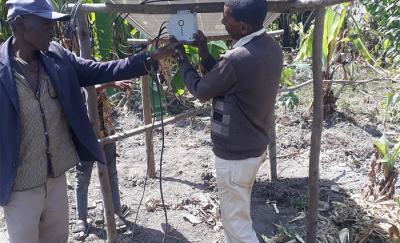
Productive Uses of Energy in African Agriculture Could Reduce Poverty
As conditions for the adoption of productive uses of energy improve in sub-Saharan Africa, this paper makes suggestions to accelerate their adoption.
Abt and Industry
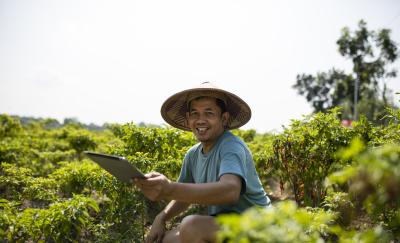
USAID Catalytic Action through Localized Policy Solutions (CATALYST)
USAID CATALYST is a global program that helps countries build policy and institutional frameworks that enable greater investment in sustainability and resilience across sectors.

TSPi Enhances the Efficiency of NOAA NMFS’s Consultation Process
TSPi designed, built, and implemented a central replacement case-management application, the Environmental Consultation Organizer (ECO), to handle submissions for consultations. The consultations can include the initial submission of project blueprints, feedback from NMFS, and more back-and-forth until final approval.

Health Effects from Exposure to Aerosolized Cyanobacterial Toxins
Toxic cyanobacteria blooms, or cyanobacterial harmful algal blooms (CyanoHABs), are becoming increasingly problematic as a result of reduced oxygen levels in bodies of water around the globe; Florida has been significantly impacted.

Evaluating the Employment Transition Model Demonstration
Low-income youth and young adults with disabilities (Y&YAD) face a myriad of unique and challenging obstacles to improving their economic well-being, from experiencing homelessness to involvement in the foster care system...
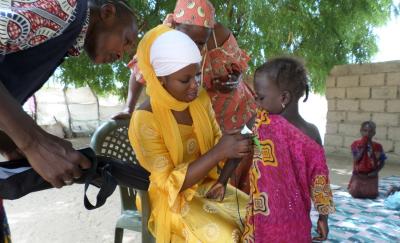
Improving Access to Basic Services in Senegal
Senegal’s government services in education, health, and water, sanitation, and hygiene (WASH) face continued challenges that slow the country’s progress toward achieving the Sustainable Development Goals. Lack of access to data-driven systems prevents…

HETA: Powering Health with Clean Energy in Africa
Across sub-Saharan Africa, at least 100,000 health facilities lack access to reliable electricity and internet connections. This gap threatens health when clinics can’t keep the lights on for nighttime services or reliably provide patients with oxygen…

Increasing Resilience Among HUD Grantees
Extreme weather events and natural disasters are impacting communities across the United States, and Americans are already feeling its effects. While environmental hazards have devastating effects on all communities, low- and moderate-income communities, including…

Hazardous Substances Spill Mitigation Analysis
In 2019, the Natural Resource Defense Council and other organizations filed suit against the U.S Environmental Protection Agency (EPA), alleging violations of the Clean Water Act’s (CWA) statutes regarding discharge of hazardous substances. EPA and the…

Empowering States to Drive Energy Policies
The EPA State and Local Climate and Energy Program offers free tools and technical resources to help states pursue their energy goals while promoting job creation and economic growth.

Development of a Conceptual Drinking Water Supply Plan for Minnesota’s East Metro Area Affected by PFAS Contamination in Groundwater
In 2018, the State of Minnesota reached a settlement with the 3M Company regarding contamination of groundwater with PFAS chemicals manufactured by 3M. Under the settlement, the 3M Company provided $850 million to the state, the bulk of which will be…

Supporting Best Practices for Coalmine Methane Recovery
Coal mine methane (CMM) is a potent greenhouse gas (GHG) released from coal during and after coal mining that contributes to climate change if emitted within the atmosphere. In addition, CMM can be an explosive hazard inside mines, and contributes to air…

Mission Support for EPA’s Toxics Release Inventory (TRI) Program
Abt provides multidisciplinary support to EPA’s TRI Program to help the Agency better understand and share trends in toxic chemical releases in the U.S.

Supporting the Planning and Evaluation of Louisiana’s Mid-Barataria Sediment Diversion
Louisiana needs to rebuild its eroding coastline, which is degrading in part because levees prevent sediment from the Mississippi River from replenishing coastal areas. The Mid-Barataria Sediment Diversion (MBSD) was proposed to reconnect the river to…

Monitoring Ecological and Socioeconomic Effects of Coastal Restoration
The National Fish and Wildlife Foundation (NFWF) wanted to understand the socioeconomic effects of 38 restoration projects funded through its Hurricane Sandy Resiliency Grant Program. The goal was to ensure accountability of Department of Interior…

Our Experts in Climate & Environment
Abt Global pioneers research and facilitates solutions to health challenges in the U.S. and around the world, teaming with private and public providers to improve health services and systems.
Industry Insights

Human Trafficking Prevalence Estimation Feasibility Study
Abt developed a feasibility study to determine how the U.S. could pilot important data collection to assess national estimates of human trafficking.

Maternal Health in Rural America: Innovative Solutions
States and communities are developing and implementing innovative approaches to reduce the alarmingly high rate of preventable maternal deaths in the rural U.S.
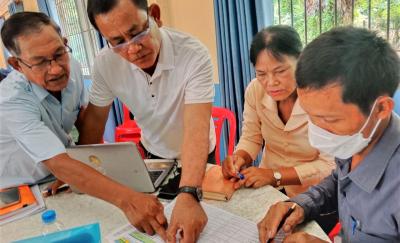
Cambodia’s Social Protection Program Enters the Digital Age
Abt played a key role in helping Cambodia create a network with interoperable data management systems to improve the impact of its social protection programs.
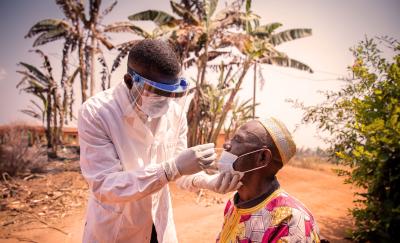
Global Health Security: 2024 Year in Review
Abt Global’s top global health security insights from 2024 as we look ahead to 2025.

Shelter from the Storm: Addressing the Dual Crisis of Extreme Weather and Homelessness
Homeless response systems need support to strengthen their resilience to extreme weather shocks and the disproportionate harm that extreme weather has on people experiencing homelessness.

How to Make Federal Justice Data More User Friendly
Abt is making federal justice data more user friendly through better visualization and filtering capabilities.

New Research Informs Nursing Home Staffing Minimums in the United States
CMS contracted Abt to conduct the 2022 Nursing Home Staffing Study, and our findings informed the agency’s 2024 staffing policy.

New Research Informs Nursing Home Staffing Minimums in the United States
CMS contracted Abt to conduct the 2022 Nursing Home Staffing Study, and our findings informed the agency’s 2024 staffing policy.

How State-Based Co-Ops Can Improve Primary Care Quality
A new AHRQ guide shares information and guidance for multi-organization groups to provide quality improvement programs for primary healthcare providers.
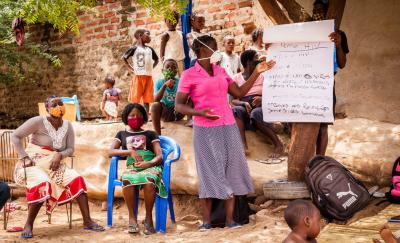
Insights and Approaches from Five Years of Addressing HIV Epidemic Control in Mozambique
The ECHO project is advancing HIV epidemic control in Mozambique through innovative approaches, local empowerment, and sustainable strategies for testing, treatment, and viral load suppression
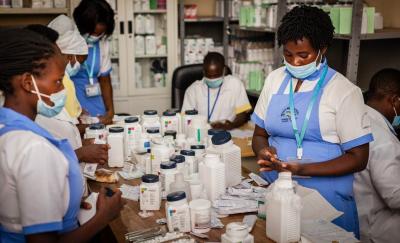
Behind HRSA’s Global HIV/AIDS Coordination
HRSA program provides versatile TA for vast portfolio of HIV/AIDS Programs, furthers bidirectional US-Global learning agenda and local system strengthening for HIV services
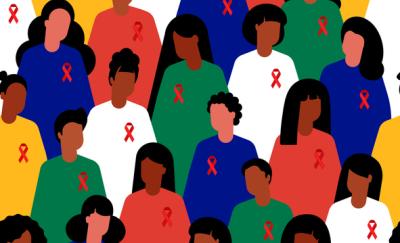
Sharing Lessons to End the HIV Epidemic in the U.S. and Abroad
This white paper explains how bi-directional learning from the U.S.-focused RWHAP program and the international PEPFAR program can help end the HIV epidemic.

Diabetes, Hypertension, Antenatal Care Among Bangladesh Women
Bangladesh needs to increase the frequency and quality of antenatal care to improve awareness of hypertension and diabetes among child-bearing women.

Fighting on Their Front: Ukraine’s Women Entrepreneurs Are Fueling a Wartime Economy
How investing in growth for all pays dividends in Ukraine.
Abt and Industry
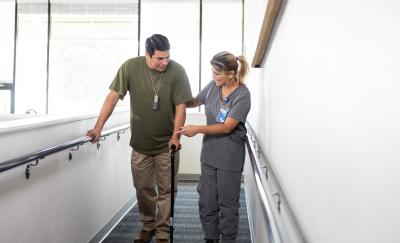
Australian Veterans’ Care Program Evaluation
An evaluation of the Coordinated Veterans’ Care Program confirmed the program’s positive impact on participants' health and satisfaction.

USAID Catalytic Action through Localized Policy Solutions (CATALYST)
USAID CATALYST is a global program that helps countries build policy and institutional frameworks that enable greater investment in sustainability and resilience across sectors.

Tracking Post COVID Conditions: Public Health Surveillance
Track PCC uses public health surveillance to learn more about the effects and burden of Long COVID among diverse populations.

Managing Opioid Use and Misuse in Older Adults
Older adults are twice as likely as the general population to have pain, and clinicians often rely on opioid treatment. As a result, opioid use, misuse, and opioid use disorder have increased among older adults, who are vulnerable to adverse reactions…

Evaluation of the ACO REACH Model
As part of a team with NORC, Abt conducted a mixed methods evaluation of the CMS ACO REACH Model and found savings and quality improvements.
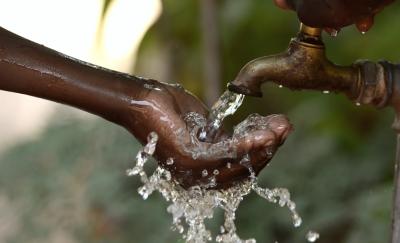
Combatting Neglected Tropical Diseases (NTDs)
Ascend Lot 1 – The UK Government’s Foreign, Commonwealth and Development Office (FCDO) set out to invest £100 million in 11 countries in East and Southern Africa and South Asia to advance the impact and sustainability of national programmes tackling NTDs…

Support to AHRQ’s Primary Care Quality Improvement Initiative
Primary care providers face multiple challenges, including underinvestment, workforce shortages, administrative burdens, and high patient volumes. They all are barriers to providing high quality and evidence-informed care.

Health Effects from Exposure to Aerosolized Cyanobacterial Toxins
Toxic cyanobacteria blooms, or cyanobacterial harmful algal blooms (CyanoHABs), are becoming increasingly problematic as a result of reduced oxygen levels in bodies of water around the globe; Florida has been significantly impacted.

Technical Assistance for DOJ Grantees Addressing Substance Use
People with a substance use disorder are overrepresented in the justice system, from the arrest phase to incarceration to the risk for recidivism. For example, more than 10 times as many people in prison (58 percent) and sentenced to jail (63 percent)…
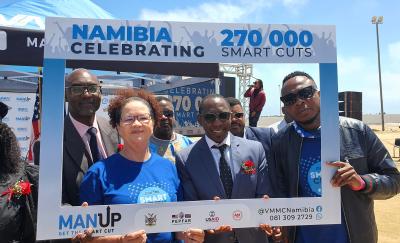
Abt-led Namibia Project Exceeds Goal for Male Circumcisions
VMMC is an integral component of the Government of the Republic of Namibia’s prevention approach to ending HIV and AIDS. Despite significant effort, VMMC coverage remains low. The population-based self-reported circumcision rate is 36.4 percent among…

Support to Modernize CMS’s Quality Measures Implementation and Reporting (QMIR) Program
Providing quality care to the more than 100 million Americans served under Medicare, Medicaid and the Children’s Health Insurance Program (CHIP) requires robust data collection and analysis of key measures and indicators. As technology has evolved, data…
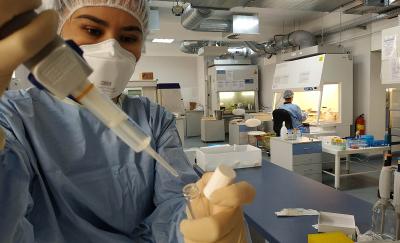
Reducing Uzbekistan’s Tuberculosis (TB) Burden
Uzbekistan has made great strides in tuberculosis (TB) control. However, the TB burden remains high, and Uzbekistan is in the top 30 countries with cases of multidrug-resistant TB. Across USAID’s reach, cure, prevent, innovate, and sustain strategic…

Maternal Health and Pregnancy Outcomes Among Incarcerated Mothers
There has been little research on women who are pregnant, give birth, or experience a pregnancy termination or loss while in prison or jail. Understanding the health and well-being of pregnant women who are incarcerated at the federal, state, and local…

Modernizing NIH’s Dietary Supplement Label Database (DSLD)
The majority of American adults take dietary supplements, and the market for these products continues to grow. In the U.S., dietary supplements are regulated by the Food and Drug Administration (FDA) as food, not as drugs, and do not require approval or…

CDC / CFA Demographic Social Comorbidities Table (DSCT)
The nation’s ability to identify and respond to outbreaks relies on access to high-quality and timely data for disease surveillance.

Our Experts in Health

Resilient Systems

Abt Global pioneers research and facilitates solutions to health challenges in the U.S. and around the world, teaming with private and public providers to improve health services and systems.
Industry Insights

Cambodia’s Social Protection Program Enters the Digital Age
Abt played a key role in helping Cambodia create a network with interoperable data management systems to improve the impact of its social protection programs.

Behind HRSA’s Global HIV/AIDS Coordination
HRSA program provides versatile TA for vast portfolio of HIV/AIDS Programs, furthers bidirectional US-Global learning agenda and local system strengthening for HIV services

Sharing Lessons to End the HIV Epidemic in the U.S. and Abroad
This white paper explains how bi-directional learning from the U.S.-focused RWHAP program and the international PEPFAR program can help end the HIV epidemic.
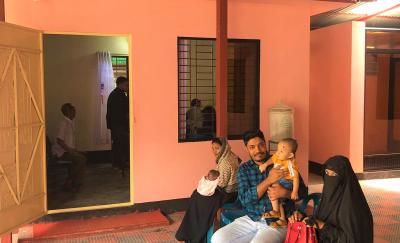
Funding Model Helps Bangladesh Expand Primary Health Care
Some municipalities fund primary health care services in urban areas of Bangladesh.
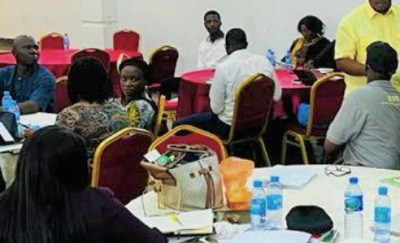
Collaboration Improves Health Insurance Coverage in Nigeria
Abt helped two Nigerian agencies collaborate to increase access to health insurance.

Migrants in Colombia Find Kindness and Support in ‘Alliances of Solidarity’
USAID’s Abt-led Local Health System Sustainability (LHSS) project built a Colombian non-governmental organization (NGO)’s capacity to help migrants get health care.
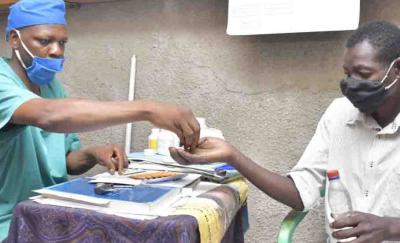
Community Focus: How the DRC Is Reducing TB
The Abt-led USAID Integrated Health Program in the Democratic Republic of Congo is enhancing the ability of communities to combat tuberculosis.
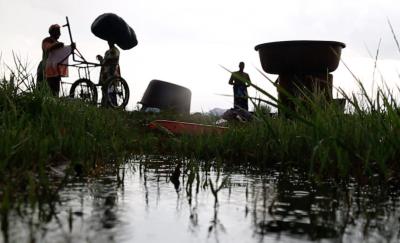
Bolstering Global Health Security in a Changing Environment
Environmental hazards require adaptive global health security strategies.
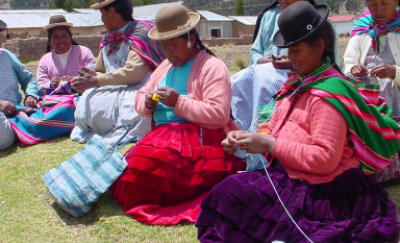
Abt Helps Local Groups Play Greater Roles in Health Systems
Abt supports new local partners in taking on incrementally larger roles in health system strengthening efforts.
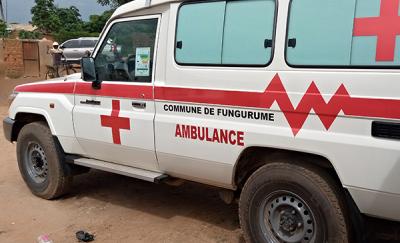
Mining Royalties Fueling Improved Health Coverage in DRC
Abt's work in the Democratic Republic of the Congo (DRC) is laying the groundwork for local governments to ramp up decisionmaking and spending on health priorities.
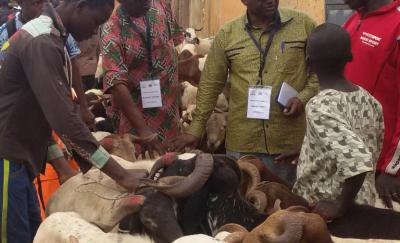
What is One Health? A Frontline Defense Against Zoonotic Diseases
A One Health approach, which includes human, animal, and environmental health, is critical for fighting diseases passed between animals and humans.
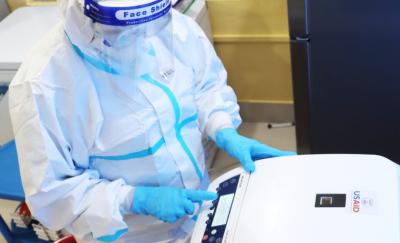
SSBH Protocols Saved Lives During Nepal’s COVID-19 Epidemic
USAID’s Abt-led Strengthening Systems for Better Health Activity helped Nepal cope with COVID-19 through the Health Emergency Response program.

Monitoring Adult Vaccine Use Helps Save Lives
Abt Global conducts annual online surveys among pregnant women and health care personnel on vaccination use and attitudes toward vaccines.

How Can We Deliver Reliable Energy to Africa’s Health Sector?
Joan Chahenza shares how the Power Africa Health Electrification and Telecommunications Alliance (HETA) is working to enhance private sector participation in health facility electrification in sub-Saharan Africa.
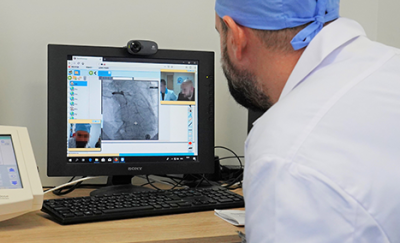
Telemedicine: A Lifeline for Ukraine's Health System Amidst War
The Abt-led USAID Local Health System Sustainability Project is helping Ukraine adopt telemedicine to connect people to healthcare during the war with Russia.
Abt and Industry

USAID Catalytic Action through Localized Policy Solutions (CATALYST)
USAID CATALYST is a global program that helps countries build policy and institutional frameworks that enable greater investment in sustainability and resilience across sectors.

Combatting Neglected Tropical Diseases (NTDs)
Ascend Lot 1 – The UK Government’s Foreign, Commonwealth and Development Office (FCDO) set out to invest £100 million in 11 countries in East and Southern Africa and South Asia to advance the impact and sustainability of national programmes tackling NTDs…

Reducing Uzbekistan’s Tuberculosis (TB) Burden
Uzbekistan has made great strides in tuberculosis (TB) control. However, the TB burden remains high, and Uzbekistan is in the top 30 countries with cases of multidrug-resistant TB. Across USAID’s reach, cure, prevent, innovate, and sustain strategic…

HETA: Powering Health with Clean Energy in Africa
Across sub-Saharan Africa, at least 100,000 health facilities lack access to reliable electricity and internet connections. This gap threatens health when clinics can’t keep the lights on for nighttime services or reliably provide patients with oxygen…
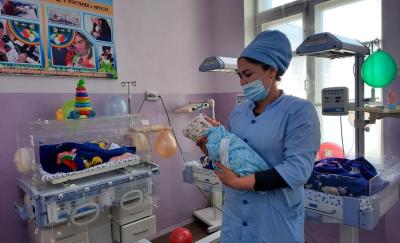
Improving Nutrition for Tajik Mothers and Children
The primary goal of the U.S. Agency for International Development’s Healthy Mother Healthy Baby (HMHB) activity in Tajikistan is to improve the nutritional status of mothers and children under two and reduce their morbidity and mortality rates. To…

Developing LocalHousingSolutions.org
Households around the U.S. face growing housing affordability challenges. While there are important roles for the federal and state governments to play in addressing this problem, many of the most critical policy solutions can only be adopted at the…
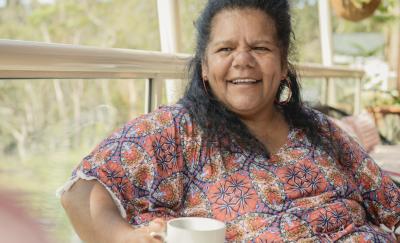
Integrated Team Care Program
Aboriginal and Torres Strait Islander peoples have high rates of risk factors associated with chronic illness and have much higher rates of chronic disease than non-Indigenous Australians. These higher rates affect overall life expectancy and mortality…
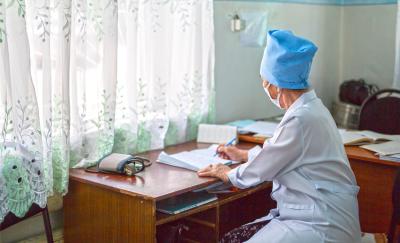
Eliminating Tuberculosis (TB) in Central Asia
Central Asia is a hotspot for DR-TB. TB services are outdated, unsustainable and expensive, and increasing financial pressure on governments means money to improve services is limited. TB has a large social impact on individuals as high levels of stigma…
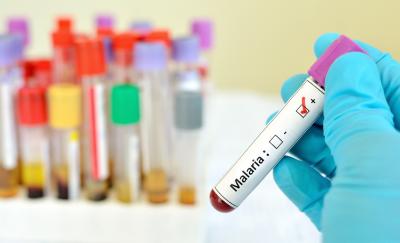
Support to the National Malaria Programme in Nigeria Phase 2 (SuNMaP2)
Efficient resource mobilisation, allocation and utilisation are important to improve the health outcomes of a population and achieve universal health coverage. Currently, there is limited capacity in Nigeria to determine whether the health system uses…
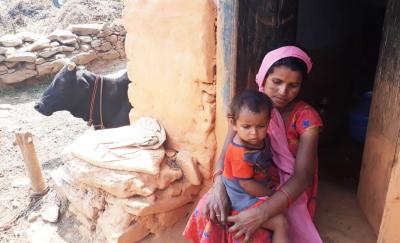
Nepal’s MEOR Program Monitors Health Outcomes
Despite its post-conflict legacy and the 2015 earthquake, Nepal continues to achieve substantial health progress. Critical health indicators are improving, including under-five and maternal mortality rates, but there are dramatically changing burden-of…
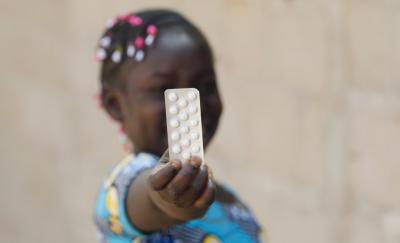
Strengthening Tanzania’s Health Supply Chain
Despite tremendous economic growth, many Tanzanians remain underserved by public services and lack reliable access to essential medicines.
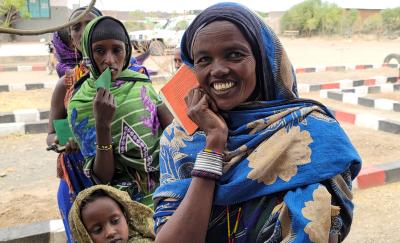
Transform: Primary Health Care Project
Achieving the Ethiopian Ministry of Health’s ambitious targets to reduce maternal, neonatal, and infant mortality by more than half requires substantial investments at the woreda (district) level. The ministry’s challenges include insufficient government…
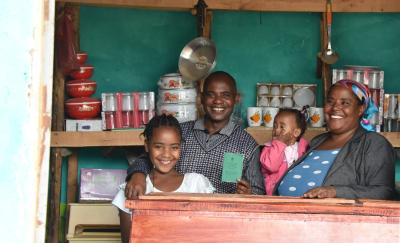
USAID Health Financing Improvement Program
Ethiopia has made much progress in the design and implementation of health care financing (HCF) reforms. These reforms address growing needs for health services, health sector resource constraints, quality of care concerns, and financial barriers to…
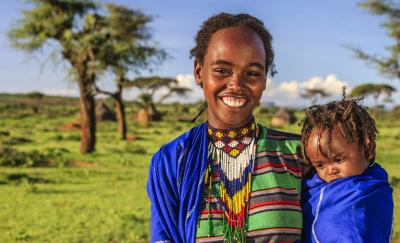
Immunization Resource Tracking Project
The Immunization Resource Tracking Project strengthened country level data on immunization financing and immunization sustainability. The Abt-led project supported the production of immunization expenditure estimates and the development of policy briefs…
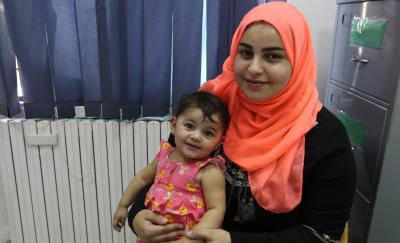
The Jordan USAID Health Service Delivery Project
USAID and the Government of Jordan (GOJ) want to expand access to—and the availability of—quality integrated essential health services at the national and sub-national levels and increase the government’s capacity to deliver these improved services…

Our Experts in Health

Stronger Economies

To support effective governance for just, secure societies, Abt brokers partnerships among governments, public-private coalitions, civil society organizations, and communities to calibrate and lead programs and policies responsive to local needs.
Industry Insights

Human Trafficking Prevalence Estimation Feasibility Study
Abt developed a feasibility study to determine how the U.S. could pilot important data collection to assess national estimates of human trafficking.

How to Make Federal Justice Data More User Friendly
Abt is making federal justice data more user friendly through better visualization and filtering capabilities.

Fighting on Their Front: Ukraine’s Women Entrepreneurs Are Fueling a Wartime Economy
How investing in growth for all pays dividends in Ukraine.

Migrants in Colombia Find Kindness and Support in ‘Alliances of Solidarity’
USAID’s Abt-led Local Health System Sustainability (LHSS) project built a Colombian non-governmental organization (NGO)’s capacity to help migrants get health care.

Mining Royalties Fueling Improved Health Coverage in DRC
Abt's work in the Democratic Republic of the Congo (DRC) is laying the groundwork for local governments to ramp up decisionmaking and spending on health priorities.

What Does the U.S. Spend on Law Enforcement? JEET Has Answers
A new Abt-developed webtool supports analysis of criminal justice expenditures and employment.

Factors That Affect Opioid Quality Improvement Initiatives in Primary Care: Insights from Ten Health Systems
This study of an Opioid Quality Improvement Collaborative can help providers adopt CDC opioid guidelines and improve their prescribing practices.

Data on Adjudication of Misdemeanor Offenses: Results from a Feasibility Study
This feasibility study will help BJS assess whether to try to gather reliable national data on misdemeanor charges filed in state, county, and city courts.

COVID-19’s Impact on State, Federal Prisons
A new report documents a sharp decline in prison populations in the U.S. during the pandemic and the number of COVID-19 related infections and deaths.

The Public Health Impact of Marijuana Legalization
This brief summarizes expert interviewee observations on marijuana legalzation’s public health effects and notes how they align with other study findings.

5 Ways Better Governance Can Help Fix the Nature Crisis
We consistently undervalue nature and its benefits; here are five ways we can address underlying governance issues to help ensure nature is better protected.

Open Government Program Helping to Prevent Corruption in Mexico
Abt worked with Mexican government leaders to create and implement innovative, practical policies and processes that improve transparency and reduce corruption.

Inmates in 2020 – Statistical Tables
The Bureau of Justice Statistics’ Prisoners in 2020 – Statistical Tables uses data collected by Abt on inmates, ranging from imprisonment rates to demographics.
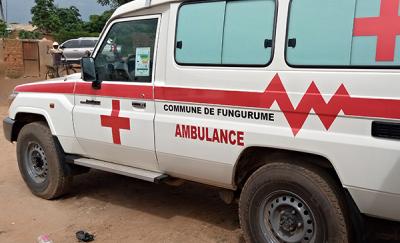
Public-Private Teaming to Pay for Health
USAID’s Abt-led International Health Program works with public and private stakeholders to mobilize resources for health in the DRC.

Exploring the Neighborhood‑Level Impact of Retail Marijuana Outlets on Crime in Washington State
This article shows a modest increase in property crimes in Washington State neighborhoods where legal marijuana retail stores open.
Abt and Industry

USAID Catalytic Action through Localized Policy Solutions (CATALYST)
USAID CATALYST is a global program that helps countries build policy and institutional frameworks that enable greater investment in sustainability and resilience across sectors.

Technical Assistance for DOJ Grantees Addressing Substance Use
People with a substance use disorder are overrepresented in the justice system, from the arrest phase to incarceration to the risk for recidivism. For example, more than 10 times as many people in prison (58 percent) and sentenced to jail (63 percent)…

Enabling Evidence-Informed Donor Decision-Making in Nepal
Foreign aid delivery is often siloed within narrow sectors or individual programmes, leading to a dearth of evidence about the aggregate effectiveness of aid. The British Embassy Kathmandu (BEK) supports Nepal in a range of thematic areas, including…

Maternal Health and Pregnancy Outcomes Among Incarcerated Mothers
There has been little research on women who are pregnant, give birth, or experience a pregnancy termination or loss while in prison or jail. Understanding the health and well-being of pregnant women who are incarcerated at the federal, state, and local…

Influencing Framework for UK Development in Nepal
Under the new Foreign, Commonwealth & Development Office (FCDO), the UK government sought to maximise the benefits of an approach that integrates diplomacy and development. These benefits included generating new evidence through research and evaluation…

PREA Audit System Provides Tool for Auditors to Conduct Sexual Safety Audits
The Department of Justice's PREA standards outline requirements for preventing, detecting, and responding to sexual abuse and sexual harassment in confinement facilities. Each year, hundreds of confinement facilities must be audited for compliance with…

Amplifying EPA’s Heat Island Reduction Program
Structures such as buildings and roads, absorb and re-emit much more of the sun’s heat than do natural landscapes such as forests and bodies of water. Urban areas with highly concentrated structures become “islands” of higher temperatures compared to…

CREST and QCS System Re-entry Service Provision
Re‐entry services help those released from detention avoid re‐offending, succeed on parole, and remain out of custody. To achieve this, reintegration programs must be responsive to the multiple factors that can influence behaviour change. These services…

Evaluating NYC’s Service Design Studio
The Service Design Studio (the Studio) is a novel approach to enhancing the capacity of New York City (NYC) municipal staff to adopt service design—sometimes referred to as human-centered design or design thinking—as a strategy to improve city services,…

Nepal’s MEOR Program Monitors Health Outcomes
Despite its post-conflict legacy and the 2015 earthquake, Nepal continues to achieve substantial health progress. Critical health indicators are improving, including under-five and maternal mortality rates, but there are dramatically changing burden-of…

UK Governance Assistance in the Pacific Region
HMG wants a scoping and design exercise for a new governance programme in the Pacific to enhance regional security and prosperity. We are assessing the contribution that the Conflict, Security and Stability Fund could make toward these objectives. This…

Comprehensive Evaluation of Roca Inc.
Roca, Inc., a non-profit organization, aims to foster behavior change and improve outcomes for high-risk young adults. Recently, Roca has expanded its program throughout Massachusetts and to Baltimore, MD, and introduced a behavior change curriculum to…

Transform: Primary Health Care Project
Achieving the Ethiopian Ministry of Health’s ambitious targets to reduce maternal, neonatal, and infant mortality by more than half requires substantial investments at the woreda (district) level. The ministry’s challenges include insufficient government…

USAID Health Financing Improvement Program
Ethiopia has made much progress in the design and implementation of health care financing (HCF) reforms. These reforms address growing needs for health services, health sector resource constraints, quality of care concerns, and financial barriers to…

Evaluating a Permanent Supportive Housing Pay for Success Initiative in Austin, Texas
Despite growing evidence of the effectiveness of permanent supportive housing, local governments often have difficulty securing the necessary investments to expand the programs. The Ending Community Homelessness Coalition (ECHO), in partnership with the…

Our Experts in Governance
Working at institutional, firm, and farm levels to expand agricultural production, strengthen market systems, and facilitate stronger business environments by brokering public-private dialogue, establishing private-sector partnerships, and supporting policy reforms.
Industry Insights

Fighting on Their Front: Ukraine’s Women Entrepreneurs Are Fueling a Wartime Economy
How investing in growth for all pays dividends in Ukraine.

Lump Sum or Recurring: Can Cash Transfers Break the Cycles of Poverty?
Data from US & international guaranteed income pilots pose critical questions – does an annual lump sum, monthly payments, or a combination best help families?

Advancing Economic Equity through Housing
Abt evaluated JPMorgan Chase’s PRO Neighborhoods to understand how grantees are addressing their communities’ diverse economic needs by investing in housing.

PRO Neighborhoods Program 2023 Annual Report
Through 2022, JPMorgan Chase’s PRO Neighborhoods grantees made nearly 37,000 loans and other investments in underserved neighborhoods, totaling over $678.6M.

My Kids Deserve the World: How Children in the Southeast Benefit from Guaranteed Income
This brief provides early insights from parents into how guaranteed income pilot programs improving outcomes for their families.

Back to School: Compensation Doesn’t Add Up for Head Start Teachers
The blog explores the challenge of Head Start's teacher shortage amid the “back to school” season, and the need to address fair compensation for educators.

How Florida’s E-Verify Law May Increase Labor Trafficking
Some features of Florida’s new E-Verify law could put workers at greater risk for labor trafficking and exploitation.

Productive Uses of Energy in African Agriculture Could Reduce Poverty
As conditions for the adoption of productive uses of energy improve in sub-Saharan Africa, this paper makes suggestions to accelerate their adoption.

How Do the Impacts of Healthcare Training Vary with Credential Length? Evidence from the Health Profession Opportunity Grants Program
Our analysis of HPOG subgroups defined by program experiences found weak evidence that long-term credentials led to meaningfully larger earnings impacts.
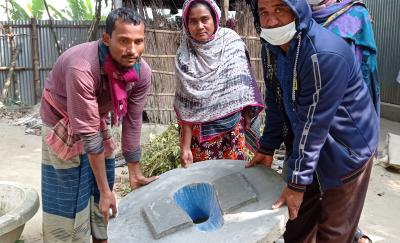
Latrine Businesses Prove Vital to Nutritional Health
Abt’s Ashfaq Enayetullah explains how commercial engagement furthers sanitation goals of our Feed the Future activity in Bangladesh and improves nutrition.

Integrating Employment Services with Substance Use Treatment and Recovery: The Experiences of Five Programs
An Abt-led report reviews five programs that combine SUD treatment and recovery services with employment services and makes recommendations for practitioners.

Career Pathways: A Strategy to Boost College Completion and Economic Mobility
Julie Strawn’s brief in the College Completion Strategy Guide provides evidence-based recommendations to improve college completion & increase economic mobility.

Benefits That Last: Long-term Impact and Cost-benefit Findings for Year Up
Year Up’s training program for young adults produced large, lasting earnings increases and positive financial benefits for society in this experiment.

AdvancingCities 2021 Annual Progress Report
In this report, Abt shares lessons learned from grantees of JPMorgan Chase & Co’s AdvancingCities program.

Valley Initiative for Development and Advancement Six-Year Impact Report
The Valley Initiative for Development and Advancement increased receipt of college certificates and degrees but did not lead to higher incomes.
Abt and Industry

USAID Catalytic Action through Localized Policy Solutions (CATALYST)
USAID CATALYST is a global program that helps countries build policy and institutional frameworks that enable greater investment in sustainability and resilience across sectors.
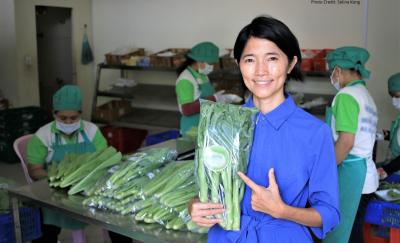
Abt’s Buyer-led, Market Systems Approach to Cambodian Horticulture
Millions of Cambodians have risen from poverty, yet many still live in vulnerable conditions. The government of Cambodia recognized that accelerating the growth of the horticulture sector would bring new opportunities, enabling farmers to benefit from…

Evaluating the Employment Transition Model Demonstration
Low-income youth and young adults with disabilities (Y&YAD) face a myriad of unique and challenging obstacles to improving their economic well-being, from experiencing homelessness to involvement in the foster care system...

Supporting the Pathways to Work Evidence Clearinghouse
Improving outcomes for job seekers with low incomes remains a critical task for U.S. social policy. Over the past three decades, significant strides have been made to build evidence on programs to improve the economic stability of those with low incomes…

Evaluating HUD’s Community Choice Demonstration
More than 2.3 million households participate in the U.S. Department of Housing and Urban Development’s (HUD) Housing Choice Voucher program, and almost a million of these households are comprised of families with children. With these vouchers, families…

Supporting Measurement, Learning, and Evaluation Efforts
The Bill and Melinda Gates Foundation’s Economic Mobility & Opportunity (EMO) team aims to improve the lives of people experiencing poverty and to catalyze systemic changes to promote upward mobility.

Clearinghouse Synthesizes Evidence on Labor Policies, Programs
The DOL-funded Clearinghouse for Labor Evaluation and Research (CLEAR) has several goals. It makes research on labor topics more accessible to practitioners, policymakers, researchers, and the public. It also provides information to inform decisions…

Process Study of the U.S. Department of Labor’s “Pay for Success” Pilots
The U.S. Department of Labor (DOL) tested the use of a Pay for Success (PFS) approach for funding and evaluating employment services. Under the PFS model, private and philanthropic investors cover the up-front costs of delivering an intervention. Then…

Evaluating the Workforce Innovation Fund
The Workforce Innovation Fund (WIF), funded by the U.S. Department of Labor, was an initiative to develop and test new services and strategies in the public workforce system. WIF required that the 43 grantees each demonstrate how their proposed…

Abt Implements SSDI Benefit Offset Demonstration
In 2015, Congress directed the Social Security Administration (SSA) to test mitigating the effects of ending Social Security Disability Insurance (SSDI) benefits when earnings exceed the cutoff level. The test allowed beneficiaries to keep $1 in benefits…

Abt’s Evaluations of Compass Working Capital’s Innovative Family Self-Sufficiency (FSS) Program
Family Self Sufficiency (FSS) is a U.S. Department of Housing and Urban Development (HUD) program designed to help housing assistance recipients increase their earnings and build savings to make progress toward economic security. The standard FSS program…

Developing LocalHousingSolutions.org
Households around the U.S. face growing housing affordability challenges. While there are important roles for the federal and state governments to play in addressing this problem, many of the most critical policy solutions can only be adopted at the…

Best Practices to Improve International Solid Waste Management
Many medium and large cities in developing countries lack the capacity to adequately manage solid waste. Limited awareness of best practices for waste management and lack of access to key technical resources are key barriers to improvement.

Evaluating JPMorgan Chase & Co.’s Challenge and PRO Neighborhoods Competition
Through the AdvancingCities Challenge and PRO Neighborhoods Competitions, JPMorgan Chase leverages a spectrum of solutions. Whether focused on neighborhood-level interventions or city-wide systems change, these initiatives encourage applicants to embody…

Deeper Insights on Americans’ Financial Well-Being
The Consumer Financial Protection Bureau (CFPB) works to help consumers enhance their financial well-being, a holistic metric that goes beyond income and credit score to capture individuals’ perceptions of their financial security and ability to make…

Our Experts in Economic Growth

Technical Adviser for Monitoring, Evaluation, Research and Learning (MERL), Abt Australia

Secure Societies

Preserving our resources isn’t just about mitigating threats. It’s also about advancing global environmental justice, renewable energy resources, and economic opportunity to create fair, resilient, sustainable, and secure societies.
Industry Insights

Understanding Public Perception of Extreme Heat and Health Risks
This report by CRC, Abt, and the National Weather Service profiles public perception of dangerous heat events & recommends actionable messaging.

How Can We Deliver Reliable Energy to Africa’s Health Sector?
Joan Chahenza shares how the Power Africa Health Electrification and Telecommunications Alliance (HETA) is working to enhance private sector participation in health facility electrification in sub-Saharan Africa.

Opportunities to Unlock Climate Finance in Emerging Markets in a High-Interest-Rate World
In a report ahead of the 27th UN COP, Abt outlines strategic opportunities for climate financiers in emerging markets amid rising interest rates.
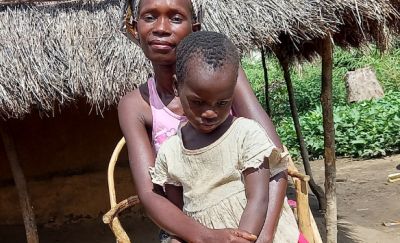
Mozambique’s Cyclone Victims Maintain HIV Treatment Through Community Support
Abt supports displaced patients across Mozambique, reconnecting them with HIV treatment and providing counseling to families as they overcome natural disasters.

5 Ways Better Governance Can Help Fix the Nature Crisis
We consistently undervalue nature and its benefits; here are five ways we can address underlying governance issues to help ensure nature is better protected.

Tradeoffs in Habitat Value to Maximize Natural Resource Benefits From Coastal Restoration in a Rapidly Eroding Wetland: Is Monitoring Land Area Sufficient?
This article compares the benefits of shallow open water areas to emergent restored wetlands in Coastal Louisiana to explore restoration ecosystem benefits.

Climate Change, Riverine Flood Risk and Adaptation for the Conterminous United States
This article predicts an up-to-30 percent increase in annual losses from riverine flooding due to climate change, and offers approaches to evaluate adaptation.
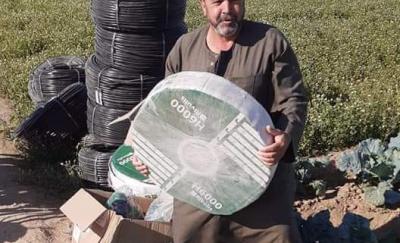
Poly-pipe Irrigation Conserves Water and Cuts Costs in Egypt
Poly-pipe irrigation can conserve scarce water, improve crop quality, and increase incomes.

Planning for Catastrophe: Developing Resilient Supply Chains
In this blog, Abt’s James White outlines what it might take to create resilient supply chains that can function unimpeded during crises such as COVID-19.
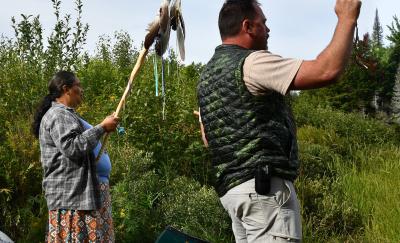
Lake Superior Manoomin Cultural and Ecosystem Characterization Study
A variety of environmental factors threaten manoomin (wild rice) in the Lake Superior Basin, including mining, agricultural practices, hydrologic controls and climate change. On behalf of the National Oceanic and Atmospheric Administration (NOAA), Abt developed a novel, non-monetary approach to characterize the value of manoomin habitats. This includes a Habitat Equivalency Analysis (HEA) tool that, combined with cultural and ecological metrics, can be used to describe the degraded functionality of manoomin habitats in terms of the amount of equivalent habitat restoration needed to counterbalance the losses. The report demonstrates the applicability of this tool through several case studies at different sites within the Lake Superior Basin.Related Case Studies:

Potential Health Benefits of Sustained Air Quality Improvements in New York City
This study finds New York City’s shutdown during COVID-19 suggests how thousands of lives and billions of dollars could be saved through improved air quality.

Past Is Prologue: A Case Study Exploration of the Role of Climate Indicators in Adaptation in the United States
This journal article finds that pairing climate indicators and projections is more productive for adaptation decision making than climate projections alone.

Analysis of the Public Health Impacts of the Regional Greenhouse Gas Initiative
The Regional Greenhouse Gas Initiative (RGGI) is the first regional market-based carbon dioxide (CO2) trading program in the United States.A new report from Abt Global, "Analysis of the Public Health Impacts of the Regional Greenhouse Gas Initiative, 2009–2014," shows that since 2009, RGGI has significantly reduced air pollution from fossil fuel power plants, improving the health of people living in the Northeast. Residents in this region are now experiencing significantly fewer premature deaths, heart attacks, and respiratory illnesses. Moreover, residents of neighboring states not specifically part of RGGI have also seen health benefits from the program.Key findings from the report include:300 to 830 lives saved;More than 8,200 asthma attacks avoided;39,000 lost work days averted; and$5.7 billion in health savings and other benefits.RGGI was launched by ten states in the Northeast: Vermont, Rhode Island, New Hampshire, Maine, Delaware, Connecticut, Maryland, Massachusetts, New York and New Jersey to reduce carbon pollution.The report provides rigorous, independent evidence that RGGI has been an economic and environmental success, with direct benefits to human health and states’ economies. These benefits also extend to neighboring states of Pennsylvania, Virginia, West Virginia and the District of Columbia.“These results show that carbon trading programs like RGGI provide many benefits,” says Michelle Manion, Abt Senior Associate and lead author of the study. “RGGI is saving lives, improving health, and increasing productivity in the Northeast.”While RGGI-driven health benefits are likely to level off in the future, this study also notes that the increasingly cleaner, more efficient electricity grid in the RGGI region will provide new opportunities for additional, substantial health benefits. As energy demand from other sectors – such as transportation and heating – shifts onto the cleaner grid in the Northeast states, similar added health benefits can be expected. Learn more about Abt's work in greenhouse gas emissions mitigationExecutive SummaryFull reportAppendix: State-level resultsFact Sheet
Abt and Industry

HETA: Powering Health with Clean Energy in Africa
Across sub-Saharan Africa, at least 100,000 health facilities lack access to reliable electricity and internet connections. This gap threatens health when clinics can’t keep the lights on for nighttime services or reliably provide patients with oxygen…

Hazardous Substances Spill Mitigation Analysis
In 2019, the Natural Resource Defense Council and other organizations filed suit against the U.S Environmental Protection Agency (EPA), alleging violations of the Clean Water Act’s (CWA) statutes regarding discharge of hazardous substances. EPA and the…

Supporting the Planning and Evaluation of Louisiana’s Mid-Barataria Sediment Diversion
Louisiana needs to rebuild its eroding coastline, which is degrading in part because levees prevent sediment from the Mississippi River from replenishing coastal areas. The Mid-Barataria Sediment Diversion (MBSD) was proposed to reconnect the river to…

Amplifying EPA’s Heat Island Reduction Program
Structures such as buildings and roads, absorb and re-emit much more of the sun’s heat than do natural landscapes such as forests and bodies of water. Urban areas with highly concentrated structures become “islands” of higher temperatures compared to…
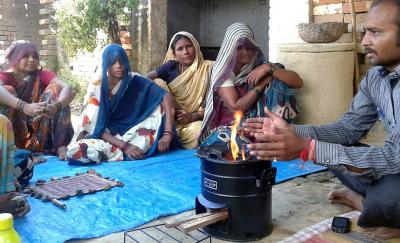
Partnering to Promote Advanced Cook Stoves
Use of advanced cook stoves is one of the primary means to reduce indoor air pollution. Advanced clean cooking devices are designed to reduce smoke emissions and save fuel through better combustion. Abt Global implemented the Market-based Partnerships…

Our Experts in Climate, Energy & Environment
Abt Global pioneers research and facilitates solutions to health challenges in the U.S. and around the world, teaming with private and public providers to improve health services and systems.
Industry Insights

Global Health Security: 2024 Year in Review
Abt Global’s top global health security insights from 2024 as we look ahead to 2025.

Insights and Approaches from Five Years of Addressing HIV Epidemic Control in Mozambique
The ECHO project is advancing HIV epidemic control in Mozambique through innovative approaches, local empowerment, and sustainable strategies for testing, treatment, and viral load suppression

Behind HRSA’s Global HIV/AIDS Coordination
HRSA program provides versatile TA for vast portfolio of HIV/AIDS Programs, furthers bidirectional US-Global learning agenda and local system strengthening for HIV services

Sharing Lessons to End the HIV Epidemic in the U.S. and Abroad
This white paper explains how bi-directional learning from the U.S.-focused RWHAP program and the international PEPFAR program can help end the HIV epidemic.

Funding Model Helps Bangladesh Expand Primary Health Care
Some municipalities fund primary health care services in urban areas of Bangladesh.

Collaboration Improves Health Insurance Coverage in Nigeria
Abt helped two Nigerian agencies collaborate to increase access to health insurance.
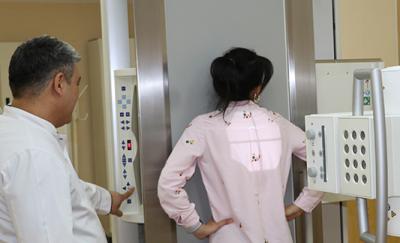
Uzbekistan Launches New TB Funding Mechanism
Uzbekistan is moving from paying TB hospitals based on occupied beds to compensation based on the number of patients treated.

Migrants in Colombia Find Kindness and Support in ‘Alliances of Solidarity’
USAID’s Abt-led Local Health System Sustainability (LHSS) project built a Colombian non-governmental organization (NGO)’s capacity to help migrants get health care.

Community Focus: How the DRC Is Reducing TB
The Abt-led USAID Integrated Health Program in the Democratic Republic of Congo is enhancing the ability of communities to combat tuberculosis.

Logistics Management Tool Brings New Strength to Vietnam’s Fight Against TB
The Abt-led USAID Local Health System Sustainability Project created a logistics management information system for TB drugs in Vietnam.

Bolstering Global Health Security in a Changing Environment
Environmental hazards require adaptive global health security strategies.

Abt Helps Local Groups Play Greater Roles in Health Systems
Abt supports new local partners in taking on incrementally larger roles in health system strengthening efforts.

Mining Royalties Fueling Improved Health Coverage in DRC
Abt's work in the Democratic Republic of the Congo (DRC) is laying the groundwork for local governments to ramp up decisionmaking and spending on health priorities.

What is One Health? A Frontline Defense Against Zoonotic Diseases
A One Health approach, which includes human, animal, and environmental health, is critical for fighting diseases passed between animals and humans.
Abt and Industry

USAID Catalytic Action through Localized Policy Solutions (CATALYST)
USAID CATALYST is a global program that helps countries build policy and institutional frameworks that enable greater investment in sustainability and resilience across sectors.

Combatting Neglected Tropical Diseases (NTDs)
Ascend Lot 1 – The UK Government’s Foreign, Commonwealth and Development Office (FCDO) set out to invest £100 million in 11 countries in East and Southern Africa and South Asia to advance the impact and sustainability of national programmes tackling NTDs…

Abt-led Namibia Project Exceeds Goal for Male Circumcisions
VMMC is an integral component of the Government of the Republic of Namibia’s prevention approach to ending HIV and AIDS. Despite significant effort, VMMC coverage remains low. The population-based self-reported circumcision rate is 36.4 percent among…

Reducing Uzbekistan’s Tuberculosis (TB) Burden
Uzbekistan has made great strides in tuberculosis (TB) control. However, the TB burden remains high, and Uzbekistan is in the top 30 countries with cases of multidrug-resistant TB. Across USAID’s reach, cure, prevent, innovate, and sustain strategic…

HETA: Powering Health with Clean Energy in Africa
Across sub-Saharan Africa, at least 100,000 health facilities lack access to reliable electricity and internet connections. This gap threatens health when clinics can’t keep the lights on for nighttime services or reliably provide patients with oxygen…

Improving Nutrition for Tajik Mothers and Children
The primary goal of the U.S. Agency for International Development’s Healthy Mother Healthy Baby (HMHB) activity in Tajikistan is to improve the nutritional status of mothers and children under two and reduce their morbidity and mortality rates. To…

Integrated Team Care Program
Aboriginal and Torres Strait Islander peoples have high rates of risk factors associated with chronic illness and have much higher rates of chronic disease than non-Indigenous Australians. These higher rates affect overall life expectancy and mortality…

Results from the Jordan Communication, Advocacy, and Policy (JCAP) Activity
Abt Global helped the USAID-funded JCAP activity communicate about—and change behaviors around—sustainable family planning and RMNCH+ services in Jordan.

Infectious Diseases Impact Healthcare Workers
Healthcare workers (HCWs) are a pivotal part of controlling the spread of infectious diseases and are at the forefront of the response to emerging pathogens. However, HCWs themselves are at high risk of exposure to these infectious diseases. To protect…

Eliminating Tuberculosis (TB) in Central Asia
Central Asia is a hotspot for DR-TB. TB services are outdated, unsustainable and expensive, and increasing financial pressure on governments means money to improve services is limited. TB has a large social impact on individuals as high levels of stigma…

Support to the National Malaria Programme in Nigeria Phase 2 (SuNMaP2)
Efficient resource mobilisation, allocation and utilisation are important to improve the health outcomes of a population and achieve universal health coverage. Currently, there is limited capacity in Nigeria to determine whether the health system uses…

Nepal’s MEOR Program Monitors Health Outcomes
Despite its post-conflict legacy and the 2015 earthquake, Nepal continues to achieve substantial health progress. Critical health indicators are improving, including under-five and maternal mortality rates, but there are dramatically changing burden-of…

Strengthening Tanzania’s Health Supply Chain
Despite tremendous economic growth, many Tanzanians remain underserved by public services and lack reliable access to essential medicines.

Transform: Primary Health Care Project
Achieving the Ethiopian Ministry of Health’s ambitious targets to reduce maternal, neonatal, and infant mortality by more than half requires substantial investments at the woreda (district) level. The ministry’s challenges include insufficient government…

USAID Health Financing Improvement Program
Ethiopia has made much progress in the design and implementation of health care financing (HCF) reforms. These reforms address growing needs for health services, health sector resource constraints, quality of care concerns, and financial barriers to…

Our Experts in Health

Join. Work. Share.

Careers at Abt
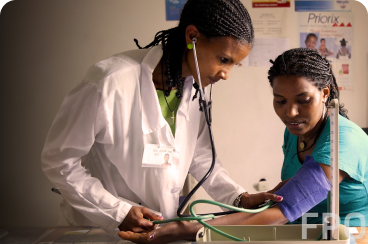
Our Expertise

